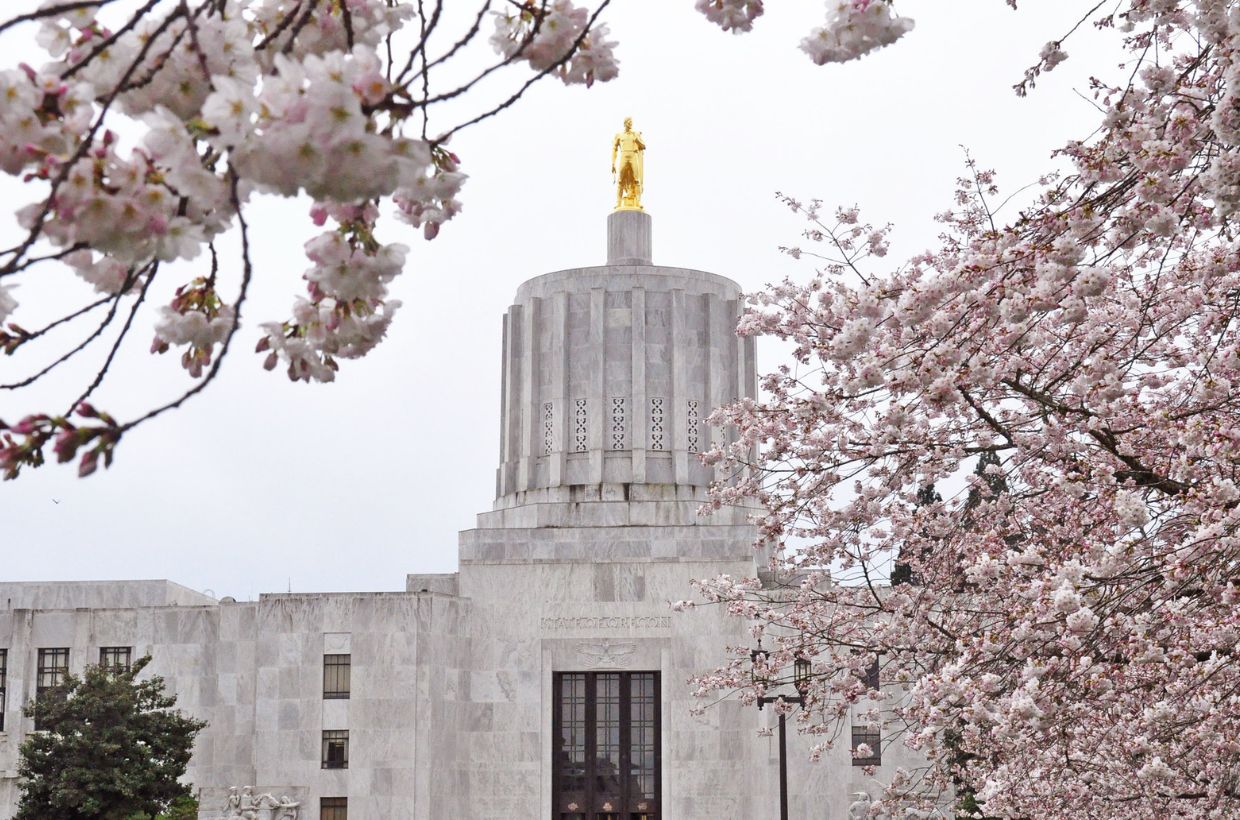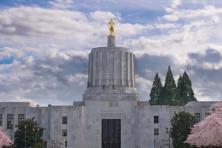Updated: April 22, 2025
In 2025, the Oregon Legislature must address urgent barriers to meeting our state's existing clean energy and climate goals while supporting community resilience and protecting people from growing climate harms and rising utility bills.
Transportation Package for a Thriving Oregon
Transportation remains Oregon's largest source of climate pollution. Alongside Move Oregon Forward coalition partners, Climate Solutions is advocating for a 2025 transportation package that leverages revenue solutions to sustainably fund clean, safe, affordable transportation options across the state. In addition to engaging through the Joint Committee on Transportation workgroups, Climate Solutions is leading conversations to advance electrification components of the package, including:
- Zero-Emission School Bus Act (HB 2945): Supports Oregon schools in the transition to zero-emission school buses by setting clear targets, providing financial and technical assistance, and prioritizing communities disproportionately affected by air pollution.
- Amping Up Oregon (HB 3597): Remove barriers to building charging infrastructure for trucks, buses, and cars and sustainably fund rebate programs for EVs and medium- and heavy-duty zero-emission vehicles.
Energy Affordability & Protecting Utility Ratepayers
Oregon households struggle to keep up with rapidly rising utility bills in the face of ever-worsening climate impacts. In partnership with the Building Resilience coalition, Climate Solutions aims to advance an energy affordability package that will help drive down utility bills and increase access to life-saving clean technologies, like heat pumps.
- Get the Junk Out of Rates (SB 88): Protects Oregonians from shouldering the costs of a utility’s political lobbying, advertising, and industry association fees.
- POWER Act: Protecting Oregonians With Energy Responsibility (HB 3546): Ensures that large energy users, like data centers and crypto operations, do not unfairly burden Oregon households with their grid and transmission costs.
- One Stop Shop 2.0 (HB 3081): Bolsters the state’s existing program to help Oregonians access financial incentives for electric heat pumps and other home efficiency upgrades.
- Community Transparency in Home Hydrogen Delivery Act (SB 685): Promotes transparency for households and communities by requiring public utilities to seek Public Utility Commission approval before delivering hydrogen into people’s homes.
Innovative Transmission Solutions for 100% Clean Energy
To meet Oregon's 100% clean electricity mandate, serve existing power needs, and create resiliency on our electricity grid, we must address a number of barriers. Climate Solutions and our partners in the Oregon Clean Grid Collaborative are advocating for innovative solutions to bolster transmission capacity and reliably and affordably deliver clean energy to Oregonians.
- Grid Enhancing Technologies (HB 3336): Expands transmission capacity by requiring utilities to deploy cost-effective technologies to existing infrastructure.
Economic Growth & Community Vitality
Oregon has made important progress in recent years to adopt new policies and programs to cut climate pollution, promote community resilience and affordability, and drive economic and job growth statewide. In order to stay on track, the legislature must ensure that existing, popular programs are sufficiently funded and prioritize additional investments and policies to enable Oregon to lead at the forefront of the global transition to a clean energy technology future.
- Thermal Energy Network Pilot Program (SB 1143): Offers new pathways for workers and utilities in the clean energy transition by authorizing a pilot program for Thermal Energy Networks (TENs).
- Climate Resilience Budget: Prioritize investments to ensure that existing, popular climate and resilience programs are adequately funded to stay on track to deliver their intended climate, health, and cost-saving benefits, including:
- Community Renewable Energy Grant Program (ODOE)
- Rental Heat Pump Program Rebates (ODOE)
- Community Heat Pump Program Incentives (ODOE)
- Community Resilience Hubs (ODHS)
- Oregon Clean Vehicle Rebate Program/Charge Ahead Rebates (DEQ)
- Medium and Heavy-Duty Vehicles Rebates (DEQ)



